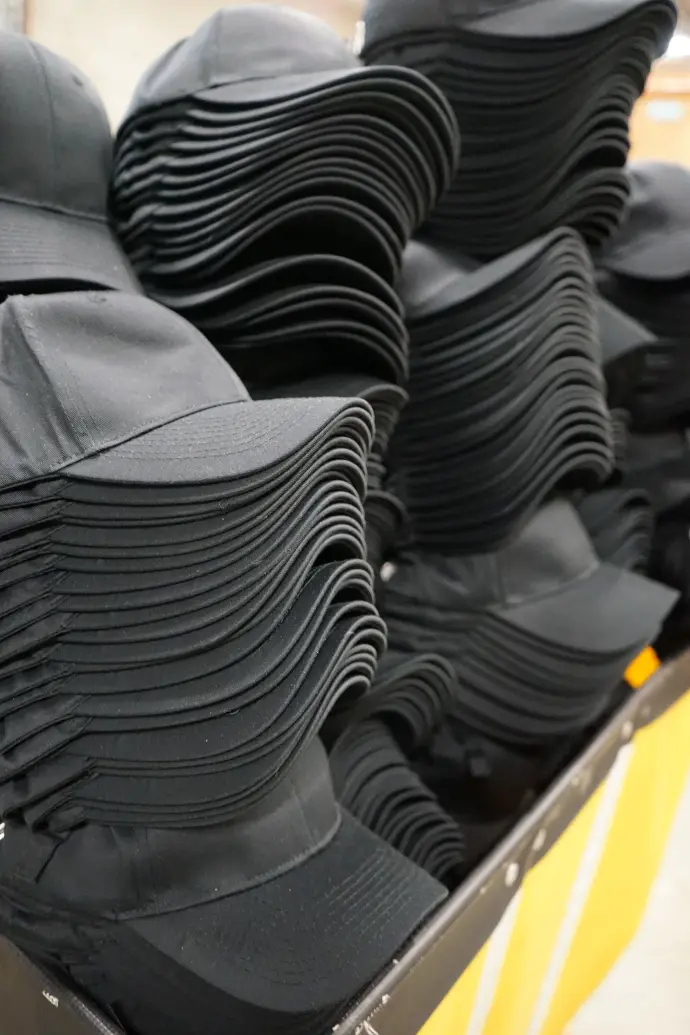In the world of business, custom apparel plays a crucial role. It's more than just clothing; it's a powerful branding tool.
Choosing the right custom apparel supplier can make all the difference. It can impact not only the quality of your products but also your bottom line.
This article aims to guide you in making that critical decision. We'll explore the benefits and considerations of choosing a nearby custom apparel supplier.
We'll delve into aspects like local embroidery, quality control, and industry standards. We'll also discuss how to balance production costs with quality considerations.
Whether you're a small business owner, a startup fashion brand, or a marketing professional, this guide is for you.

Understanding Custom Apparel Suppliers
A custom apparel supplier is a company that produces clothing items based on specific requirements. These suppliers cater to businesses that need unique, branded apparel for various purposes.
The services offered by a custom apparel supplier can vary. Some focus on specific types of apparel like t-shirts or uniforms. Others offer a wide range of products, from hats to hoodies.
Custom apparel suppliers can also provide additional services. These may include:
- Design assistance
- Local embroidery
- Screen printing
- Direct-to-garment printing
- Sublimation printing
Choosing a custom apparel supplier is a strategic decision. It's crucial to find a supplier that aligns with your brand's values and quality expectations. In the following sections, we'll explore how to make this decision wisely.
The Benefits of Local Custom Apparel Suppliers
Choosing a nearby custom apparel supplier comes with several benefits. One of the most significant advantages is the reduction in shipping costs. When your supplier is local, you can save on freight charges, customs duties, and other related expenses.
Another benefit is faster turnaround times. Local suppliers can often deliver products quicker than overseas counterparts. This speed can be crucial when you need to meet tight deadlines or respond to sudden demand spikes.
Local suppliers can also offer personalized services. For instance, they may provide local embroidery, which adds a unique touch to your custom clothing. This service can help your brand stand out and create a lasting impression on your customers.
Here are some other benefits of working with a local custom apparel supplier:
- Better communication: With no language barriers or time zone differences, you can communicate more effectively with your supplier.
- You have more control over the quality by visiting the supplier's facility. This allows you to check the production process and ensure that quality standards are being met.
- Support your local economy by choosing to buy from local suppliers. This helps local businesses thrive and boosts economic growth in your community.
In the next section, we'll compare local and overseas suppliers to help you make an informed decision.
Pros and Cons: Local vs. Overseas Suppliers
When picking a custom clothing supplier, it's important to consider the advantages and disadvantages of local and overseas options. Each has its unique advantages and challenges that can impact your business in different ways.
Local suppliers, as mentioned earlier, offer several benefits. These include reduced shipping costs, faster turnaround times, and personalized services like local embroidery. Additionally, communication is often smoother with local suppliers due to the absence of language barriers and time zone differences.
However, local suppliers may sometimes charge higher prices compared to overseas manufacturers. This difference is often due to the lower labor and production costs in countries like China, India, and Bangladesh.
On the other hand, overseas suppliers can offer significant cost savings, especially for bulk orders. But these savings can come with challenges such as:
- Communication barriers: Language differences and time zone discrepancies can make communication difficult.
- Longer lead times: Shipping products from overseas can take longer, potentially delaying your supply chain.
- Quality control can be challenging when your supplier is located far away.
Next, we will discuss the benefits of being close to your supplier for collaboration and quality control during manufacturing.
The Manufacturing Process Explained
The manufacturing process of custom apparel involves several steps, from design to production. Understanding this process can help you make informed decisions when choosing a supplier.
The first step is the design phase. This is where you share your vision, ideas, and specific requirements with the supplier. The supplier then translates these into a tangible design, often using advanced software. This step is crucial as it sets the tone for the rest of the process.
Next comes the production phase. This involves various stages such as fabric selection, cutting, sewing, and finishing. Quality control checks are conducted throughout this process to ensure the final product meets your expectations.
Working with a nearby custom apparel supplier can enhance this process. Proximity allows for better collaboration, quicker iterations, and a more hands-on approach to quality control. In the next section, we'll delve deeper into the importance of quality control in the custom apparel industry.
Quality Control in Custom Apparel

Quality control is a critical aspect of the custom apparel industry. It involves a series of checks and balances to ensure the final product meets the desired standards.
A local supplier can offer more stringent quality control. Being nearby allows for regular oversight and immediate rectification of any issues. This can result in a higher standard of finished products, ensuring your brand's reputation for quality is upheld.
In the end, the quality of your custom apparel reflects on your brand. Therefore, choosing a supplier with a robust quality control process is essential. In the next section, we'll discuss the importance of industry standards and compliance in the custom apparel industry.
Bulk Orders and Production Costs: Finding the Balance
Bulk orders are a common practice in the custom apparel industry. They allow businesses to reduce per-unit costs, making the overall order more affordable. However, managing production costs while maintaining quality can be a delicate balance.
Working with a nearby custom apparel supplier can help. Local suppliers are often more flexible and can accommodate bulk orders without compromising on quality. They can also provide faster turnaround times, reducing the overall production costs.
In conclusion, finding the right balance between bulk orders and production costs is crucial. It's about making smart decisions that benefit your brand without sacrificing the quality of your custom apparel. In the next section, we'll explore the role of local embroidery in branding.
The Role of Local Embroidery in Branding
Local embroidery can add a unique touch to your custom apparel. It's a form of branding that can set your products apart from the competition. With a nearby custom apparel supplier, you can collaborate closely on the design and execution of the embroidery.
This personalized service can enhance your brand's identity and appeal. It's a testament to the value of choosing a local supplier for your custom apparel needs.

Negotiating with Your Custom Apparel Supplier
Negotiating with your custom apparel supplier is a crucial step in the process. It's about striking a balance between cost and quality. A nearby supplier can offer more flexibility and understanding of your specific needs.
Remember, the goal is to establish a long-term relationship. This means finding a supplier who is willing to work with you to achieve your brand's vision, while also respecting your budget constraints.
Case Studies: Success Stories of Local Partnerships
There are numerous success stories of brands partnering with local custom apparel suppliers. These partnerships often lead to increased brand recognition, cost savings, and a boost in local economy.
For instance, a startup fashion brand might partner with a local supplier for their launch collection. The close proximity allows for frequent communication and adjustments, ensuring the final product aligns with the brand's vision. The result? A successful launch, positive customer feedback, and a strong foundation for future collections.
In another case, a corporate company might choose a local supplier for their employee uniforms. The supplier's ability to quickly respond to changes in staff size or design updates can be invaluable. Plus, employees appreciate the quality and comfort of locally made apparel, boosting morale and company pride.
Conclusion: Making the Right Choice for Your Brand
Choosing a nearby custom apparel supplier can be a strategic move for your brand. It offers numerous benefits, from cost savings and quality control to supporting local businesses and reducing environmental impact.
However, the decision should be based on careful consideration of your brand's specific needs and goals. Remember, the right supplier is one that aligns with your values, meets your quality standards, and can grow with your business. So, cut costs, not corners, and make the choice that best serves your brand.
Think about the benefits of partnering with a local custom clothing supplier for better collaboration and quality control. It can be difficult to maintain quality when your supplier is far away. and disadvantages of local and international choices.
Local Advantage: Choosing a Nearby Apparel Supplier